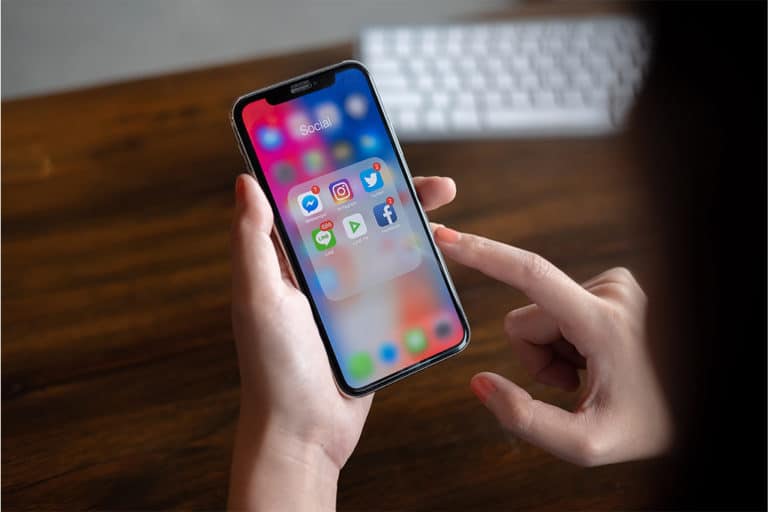Many of us have been conditioned, maybe even manipulated, to believe that we must install and have an antivirus or malware protection program on our phones to avoid becoming the victims of a shady gang of people coming after our personal information stored on our mobile devices.
That’s wrong information, which Check Point’s in a recent report on alleged protection apps that rob people’s banking information really drives home.
Yes, we have found applications labeled as Android antivirus or anti-malware protection software that were really collecting financial information from consumers in Italy and the United Kingdom. Before the applications were removed from the Play Store, about 15,000 individuals were affected.
We are going to make these applications visible since they may exist in third-party app shops. Zbynek Adamcik, Adelmio Pagnotto, and Bingo Like Inc. are the developers behind them all. Stay away from any programs created by these developers.
The main issue here, though, is that these developers capitalized on the inherent FUD that has surrounded Android since its inception: it’s riddled with security flaws and malware lurking around every corner, waiting for you to install it.
The opposite could not be further from the truth.
You can’t even catch a virus on your Android phone.
The term “virus” is frequently used, but did you know that your Android (and iOS) phones and tablets can’t catch or spread them?
However, both can be infected by other sorts of malware, so it’s crucial to understand what can and cannot happen.
A virus is a piece of software that can install itself, duplicate itself, and spread to other devices without your knowledge or help. Nothing can be done automatically on Android or iOS unless Google or the firm that created your phone’s operating system wants it to.
Because of the user/group permission mechanism, this is the case. You are a user, and as such, you are a member of a group of users who have comparable permissions. The system is a user as well, but it belongs to a distinct group with different rights. Every file and folder on your phone is aware of which individuals and/or groups are permitted to make changes to it. You can’t edit anything if you don’t have the appropriate permissions as a user or as a member of a group.
Some users and groups have more permissions than others, such as the system level that Google or Samsung would have if you were using a Galaxy S22. If you prefer to play with your phone and have it rooted, you can give yourself superuser access to modify anything you want.
No app may be installed unless a user with app installation ability (you and any other users who have logged in to your phone) approves it. That software can only access its own data and files once installed, thus it can’t replicate itself. Even if it were to be transported to a different phone, it would be subject to the same restrictions – someone would have to actively hit a button that says yes when it wants to be installed.
There are, however, different sorts of malware. Typically, the malware attempts to collect random data about you from other programs and then transmits it back to a centralized server. This may be anything seemingly innocuous, such as which applications you have installed and how frequently you use them, or something more sensitive, such as your bank password. Both are quite risky.
This kind of data exploitation isn’t meant to happen, but there are plenty of people with ill intentions who are just as smart as the ones who created your phone’s operating system. Vulnerabilities in software are frequent. They are, however, fixed regularly, which is why security updates are the most critical of all.
This second sort of malware, not a virus, is what smartphone users should be concerned about. And there was a time when you had to pay attention or rely on a third-party app to avoid getting into problems with a terrible app. Those days, however, are no longer.
You already have the appropriate malware scanner installed.
Unless your phone is running a version of Android stripped of all Google features, you already have the malware scanner you need in Google Play Protect.
The majority of people believe it exists to scan programs purchased and installed from the Play Store, however, this is not the case. It examines every third-party app on your phone regularly and alerts you to anything suspicious. If you haven’t received any notifications regarding a problematic app, you haven’t received any.
In this way, Android is similar to Windows. Using a third-party virus scanning program on any operating system wasn’t always a terrible idea. Those days are now gone, and both Microsoft and Google have grasped the importance of providing the necessary tools and automatically updating them.
All you need is a malware scanner, which Google has offered as part of its services package.
Installing a second malware scanning program isn’t always necessary — unless it’s a bank account-stealing trojan masquerading as a security app — and there are some things that Windows Defender or Google Play Protect won’t recognize as malware.
Because both Microsoft and Google do not consider monitoring cookies or personal information you are automatically sharing as malware, you will need to use a tool to find out more. However, if you’re just concerned about malicious applications stealing data from the nicest Android phone you’ve ever purchased, you’re already protected.














